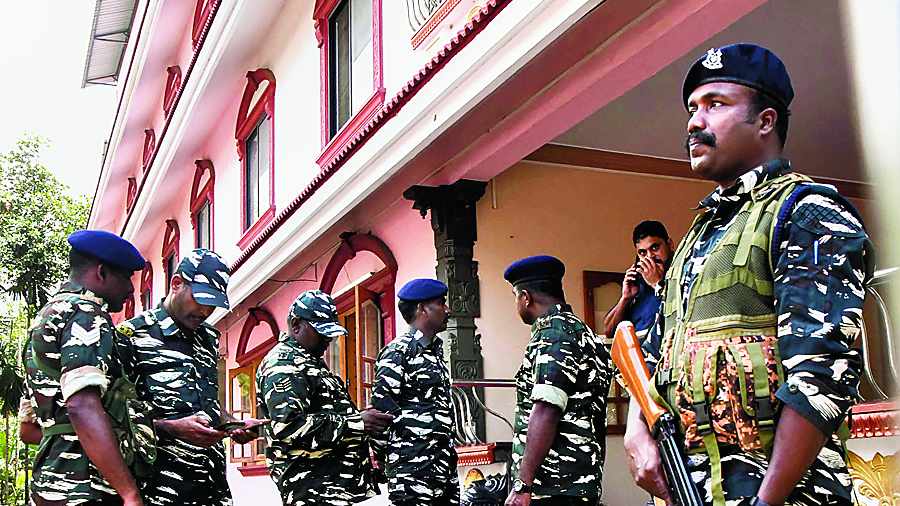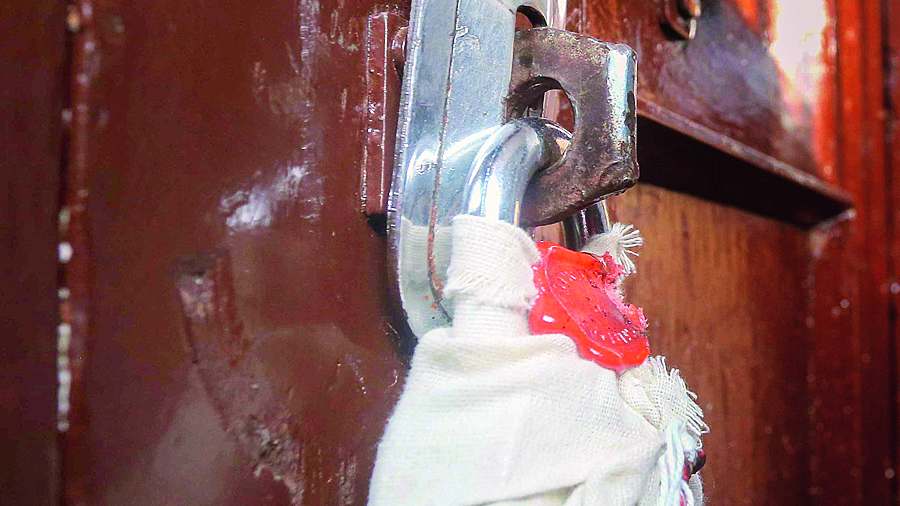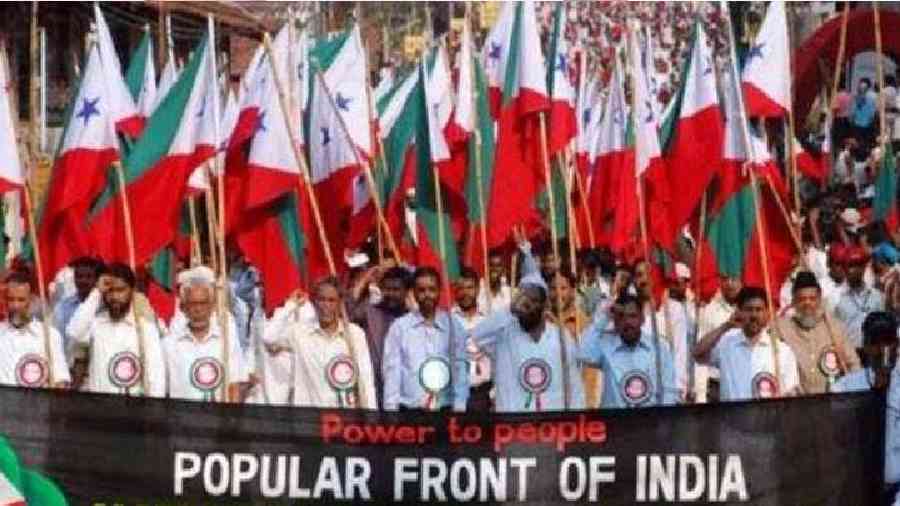The Centre has banned the Popular Front of India (PFI) and its eight frontal organisations over charges that include terrorism, terror funding, militancy and radicalisation of “a particular section of the society”.
The Union home ministry said the PFI and its frontal outfits had been declared an “unlawful association” under the anti-terror law, Unlawful Activities Prevention Act (UAPA), for five years.
The frontal organisations that have also been banned are the Rehab India Foundation, Campus Front of India, All India Imams Council, National Confederation of Human Rights Organisation, National Women’s Front, Junior Front, Empower India Foundation and the Rehab Foundation, Kerala.
Sources in the home ministry said that following the ban, central law-enforcement agencies and state police can arrest members of the organisation, freeze its accounts and confiscate its assets.
“Section 10 of the UAPA criminalises membership of a banned organisation. Being a member of a banned organisation is punishable by an imprisonment of two years that may extend to life imprisonment and even the death sentence in certain circumstances,” said a ministry official.
The ban came against the backdrop of a multi-state crackdown on the PFI on September 22 and 27, during which around 300 leaders and members were arrested or detained by the National Investigation Agency, other central agencies and state police forces.
PFI leaders in Tamil Nadu said the “illegal and undemocratic ban” on the organisation would be fought in the courts of law. The Kerala headquarters of the PFI — Unity House — wore a deserted look on Wednesday.
The PFI, formed in Kerala in 2006 and headquartered in Delhi, claims to work for disadvantaged sections of society. It is accused by critics of being a “radical” Islamist organisation.
In its notification, the Union home ministry said the PFI and its fronts “have been indulging in unlawful activities which are prejudicial to the integrity, sovereignty and security of the country and have the potential of disturbing public peace and communal harmony of the country and supporting militancy in the country”.
The notification said some of the founding members of the PFI were leaders of the Students Islamic Movement of India (Simi) and that the PFI had links with the Jamat-ul-Mujahideen Bangladesh. Both Simi and the JMB are proscribed organisations. The home ministry said the PFI also had links with global terrorist outfits like the Islamic State, and had “participated in terror activities in Syria, Iraq and Afghanistan”.
It said the PFI and its associates “have been working covertly to increase radicalisation of one community by promoting a sense of insecurity in the country, which is substantiated by the fact that some PFI cadres have joined international terrorist organisations”.
The other major grounds listed by the home ministry for the ban are:
- The PFI is involved in several criminal and terror cases and shows sheer disrespect towards the constitutional authority of the country, and with funds and ideological support from outside it has become a major threat to the internal security of the country.
- Investigations in several cases have revealed that the PFI and its cadres have been repeatedly engaging in violent and subversive acts. Criminal violent acts carried out by the PFI include chopping off a limb (right hand at the wrist) of a college professor (in Kerala), cold-blooded killings of persons associated with organisations espousing other faiths, obtaining explosives to target prominent people and places and destruction of public property.
- The office-bearers and cadres of the PFI, along with others, are conspiring and raising funds from within India and abroad through banking channels and hawala, donation, etc, as part of a well-crafted criminal conspiracy, and then transferring, layering and integrating these funds through multiple accounts to project them as legitimate, eventually using these funds to carry out various criminal, unlawful and terrorist activities in India.

Security personnel outside the RSS office in Kochi on Wednesday, when the PFI was banned. PTI picture
The home ministry said investigations had established clear links between the PFI and its associates or affiliates or fronts.
It added that these outfits had a “hub-and-spoke” relationship, with “the PFI acting as the hub and utilising the mass outreach and fundraising capacity of the affiliate groups for strengthening its capability for unlawful activities”. The fronts, the ministry said, functioned as “roots and capillaries through which the PFI is fed and strengthened”.
The home ministry said the “PFI and its associates or affiliates or fronts operate openly as socio-economic, educational and political organisations, but they have been pursuing a secret agenda to radicalise a particular section of the society, working towards undermining the concept of democracy and showing sheer disrespect towards the constitutional authority and constitutional set-up of the country”.
The official who explained the consequences of the ban said the home ministry on Wednesday issued another order empowering the state governments to identify places associated with the PFI and its front organisations where unlawful activities take place. Under the order, district magistrates will make a list of the immovable properties of the organisation.
BJP-ruled Gujarat, Assam, Uttar Pradesh and Karnataka had earlier recommended a ban on the PFI.
A former Intelligence Bureau chief questioned the timing of the ban. “Over the past eight years the government did not do anything despite calls for banning the organisation from several BJP-ruled states and politicians. They have declared a ban now with an eye on the forthcoming Assembly polls in Gujarat and Karnataka,” he told this newspaper.
(Additional reporting from PTI)











